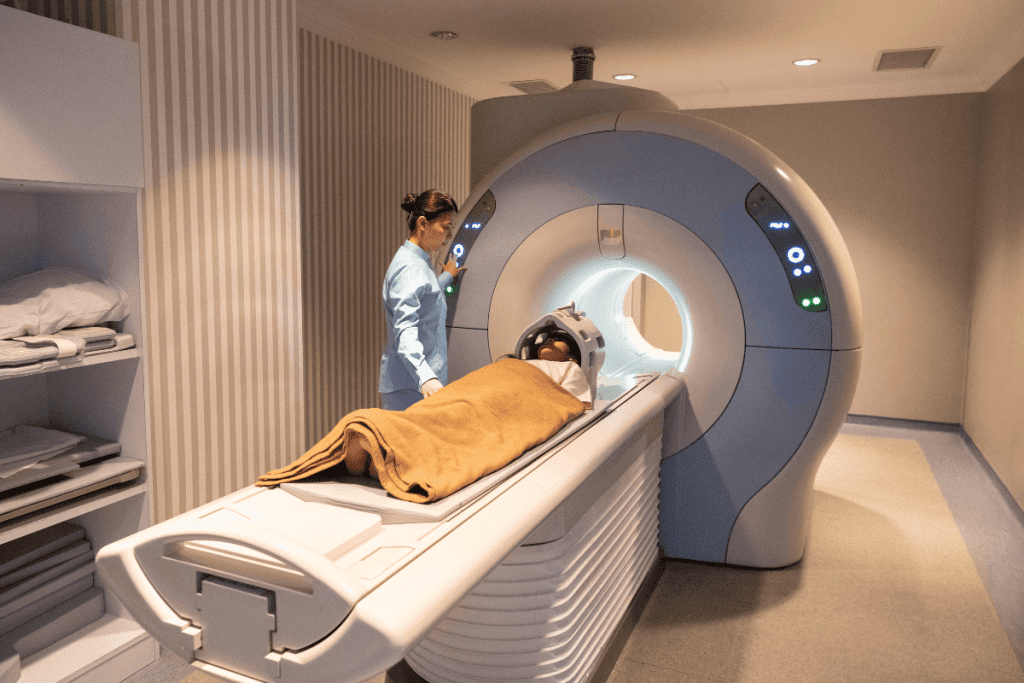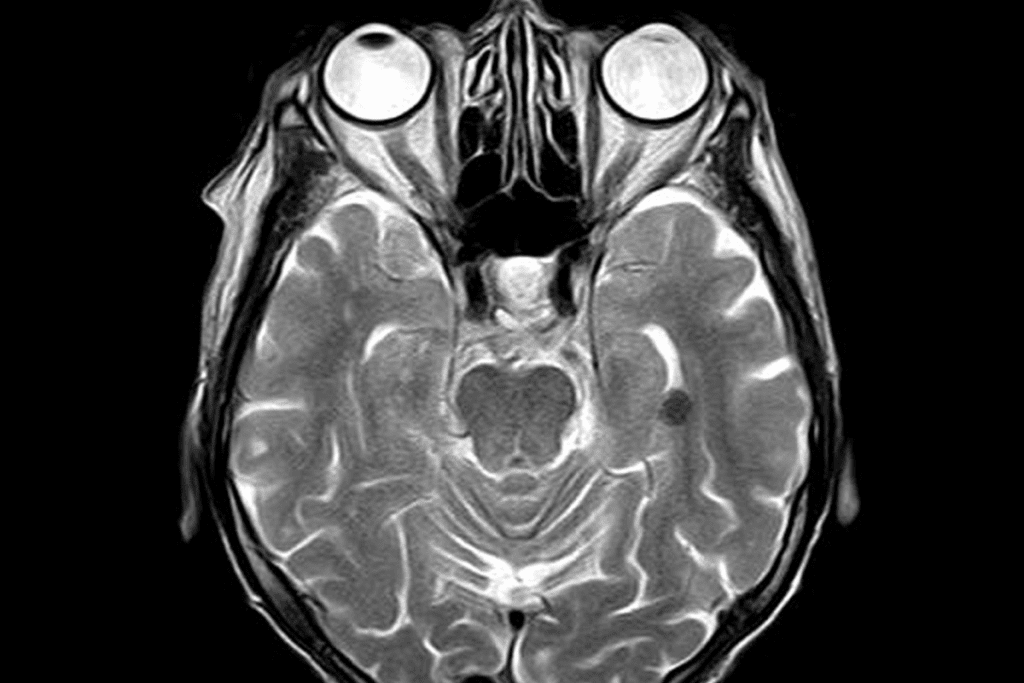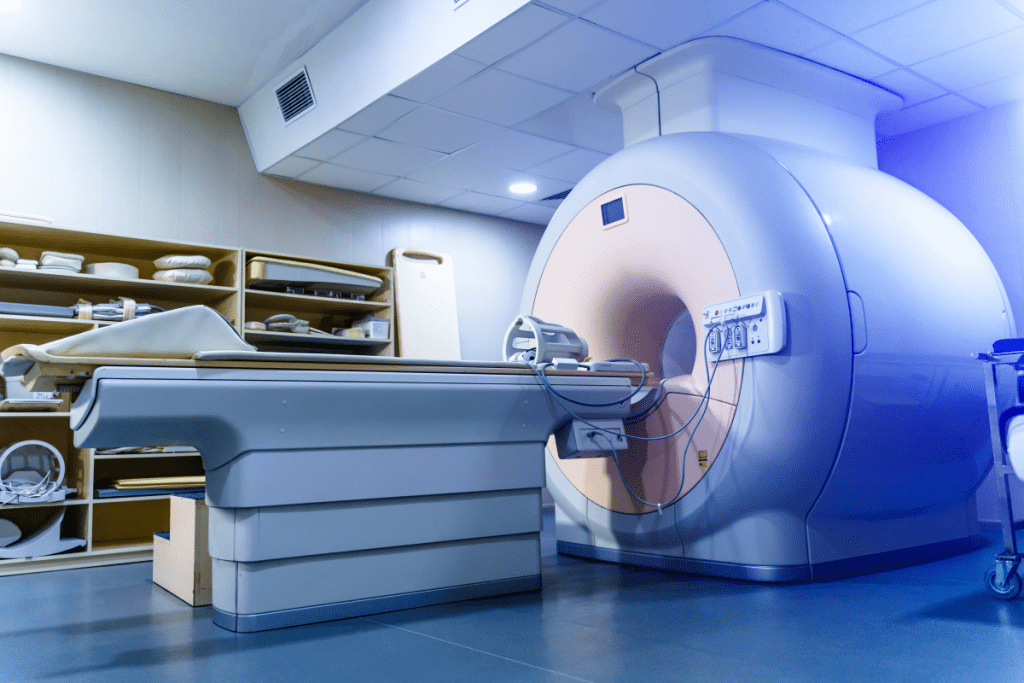Last Updated on November 25, 2025 by

Doctors are now more careful when they decide to order MRIs. At Liv Hospital, we understand the complexities involved in this decision-making process. They are hesitant to order MRIs for several reasons, like medical need, system limits, and patient wants. The reasons for reluctance (cost, availability) are explored, and we clarify who can order an mri.
We know that doctors don’t take the decision to order an MRI lightly. They think about many things, like prior authorization for MRI and who can order one. By understanding these, we see the careful thought doctors put into ordering an MRI.
Getting an MRI is more complicated than it seems. It involves many people and things to think about. Healthcare providers face a big challenge. They must meet patient needs while dealing with real-world problems.

Almost half of all MRI orders for outpatients are delayed by over 10 days. This shows how long patients might wait for an MRI. Delays happen for many reasons, like not enough imaging time and insurance problems.
Here are some important numbers:
Patients often think getting an MRI will be easy. But, it’s not. It involves many steps and checks, like medical necessity guidelines and insurance approvals.
We try to close this gap at our place. We give clear help and support during the MRI ordering process. We follow evidence-based medicine. This means we only order MRI scans when they’re really needed, following mri medical necessity guidelines. This way, we manage patient hopes and make sure MRI scans are used right.
Some reasons MRI scans might not be approved include:
We work with patients and healthcare providers to make the MRI ordering process smoother. We want to cut down on unnecessary delays.
Getting MRI scans can be hard due to many reasons. These include not enough equipment and how much money people have. These problems make it tough for us to get MRI scans to our patients fast.
There’s often more need for MRI scans than there is equipment. Limited MRI equipment in hospitals can cause delays. This can mess up when patients get diagnosed and treated. We’re trying to use what we have better to meet the demand for MRI scans.

Booking an MRI scan can be hard and takes a long time. Many things cause these delays, like too many patients, not enough staff, and needing to prepare patients well before the scan. We’re looking into ways to make scheduling easier, so patients don’t have to wait as long.
Money and social status can really affect when you can get an MRI scan. People with less money might not have insurance or have too little insurance. This means they might not get MRI scans when they need them. Knowing when an MRI is not necessary helps us use our resources better. Also, insurance denial of MRI can make things harder, showing we need to help patients deal with these problems.
We’re working on solving these problems to make sure everyone can get MRI scans when they need them.
Insurance and authorization hurdles often block patients from getting MRI scans. These barriers can slow down diagnosis and treatment. This can harm patient outcomes.
The prior authorization process for MRI involves several steps. Healthcare providers must get approval from insurance companies before the scan. This step is key to make sure the MRI is needed and covered by insurance. We help our patients understand what’s needed for approval.
To start the process, we send a request to the insurance company. We include details about the patient’s condition and why the MRI is needed. The insurance company then reviews this, which can take a few days to weeks.
Insurance companies deny MRI requests for many reasons. These include not being medically necessary, lacking the right documentation, or needing other tests first. Knowing these reasons helps in appealing or finding other tests.
When insurance denies or only partially covers MRI, patients face big costs. We help our patients understand these costs. We also look for ways to make care affordable, like finding cheaper diagnostic tests.
For those struggling financially, we look at cheaper diagnostic options. This way, we manage costs while ensuring patients get the care they need.
Ensuring MRI scans are ordered with care is key in evidence-based medicine. At Liv Hospital, we follow MRI medical necessity guidelines closely. This ensures our patients get the best diagnostic care.
MRI medical necessity guidelines help standardize MRI use. They make sure MRI scans are used only when needed. These guidelines help doctors decide when an MRI is the best choice for a patient.
Studies show 20-50% of advanced imaging, like MRI scans, may not be very helpful. This overuse can cause too much radiation exposure, higher healthcare costs, and longer wait times for those who really need these tests.
We aim to cut down on advanced imaging overuse. We follow evidence-based guidelines and look for other diagnostic options when needed.
While MRI scans are useful, they’re not always the first choice. Other tests like X-rays, CT scans, and ultrasound might be better for some conditions. We look at these options as part of our patient-centered care.
By carefully checking if MRI scans are needed and looking at other options, we aim to give our patients the most effective and efficient care.
MRI ordering is a careful process in healthcare. It makes sure MRI scans are used right. This helps patients get the right care without too much advanced imaging.
Primary care doctors and specialists both decide when to order an MRI. Primary care doctors first check patients and send them to specialists if needed. Specialists, with more training, often order MRIs for detailed checks.
Primary care physicians are key in deciding if an MRI is needed. They send patients to specialists. Specialists then check if an MRI is right for the patient’s condition.
Each medical field has its own rules for MRI use. For example, orthopedic surgeons check for bone injuries with MRI. Neurologists use MRI to find brain and spinal cord problems. Knowing these MRI clinical guidelines by specialty helps use MRI scans wisely.
The MRI ordering process aims to avoid too many tests. But it can feel too strict at times. Finding a balance is key. We need to think about both the need for clear diagnosis and the risks and costs of MRI scans.
By knowing who can order an MRI and following MRI clinical guidelines, doctors can give the right care. This way, patients get what they need without too much advanced imaging.
Deciding to get an MRI often involves more than just medical need. Clinical guidelines help, but other factors also play a big role.
Defensive medicine is a big reason for MRI orders. Doctors might order MRIs to avoid lawsuits. This can lead to too much testing and higher costs.
A study showed defensive medicine leads to too much advanced imaging. We need to find a better way that focuses on real medical needs.
Patient wants and satisfaction scores also affect MRI orders. Patients might ask for MRIs because they’re worried or want a clear diagnosis. Doctors might agree to meet these needs and keep patients happy.
Money and how it’s paid out also influence MRI orders. Payment systems can encourage more MRI use. But, strict rules for MRI approval can cause delays or denials.
“The financial side of MRI orders is key, as payment rules affect how we get these tests.”
It’s important to understand these hidden factors in MRI orders. By recognizing these complex issues, we can improve how we use MRI scans. This will make imaging more focused on what’s best for patients.
At Liv Hospital, we get how complex MRI ordering can be. It affects patient care a lot. We see the need for a careful look at MRI gatekeeping and finding good alternatives.
We focus on our patients first. This means we use the best medicine and think about what each patient needs. We aim to give care that tackles the MRI ordering issues head-on.
We keep improving and aim for top medical care worldwide. Our MRI ordering is based on deep understanding. This way, our patients get the right tests at the right time.
Doctors might not want to order an MRI for several reasons. These include limited imaging resources and insurance issues. We make sure an MRI is really needed before ordering it.
Prior authorization means we check with insurance to see if an MRI is needed. We send in the right papers to support the MRI’s necessity. Then, the insurance company decides if they’ll approve it.
Insurance might say no to an MRI if it’s not really needed. They also might not approve it if we don’t get the okay first. Other reasons include missing papers or other tests being available.
Yes, there are other tests like CT scans or ultrasound. We pick the best test for each patient, thinking about what’s needed and what’s covered by insurance.
Money and access to healthcare can make it hard for people to get an MRI. We try to use our resources well and help patients get the care they need quickly.
Both primary care doctors and specialists can order an MRI. They follow specific guidelines for their field. We stick to evidence-based medicine to make sure MRI scans are used wisely.
MRI gatekeeping means making sure MRI scans are used right. It’s about finding the right balance between getting clear results and avoiding unnecessary risks and costs. Our goal is to care for our patients while avoiding unnecessary tests.
Money and how insurance pays for tests can affect when and how often MRI scans are ordered. We focus on what’s best for our patients, not just what’s cheapest.
Subscribe to our e-newsletter to stay informed about the latest innovations in the world of health and exclusive offers!